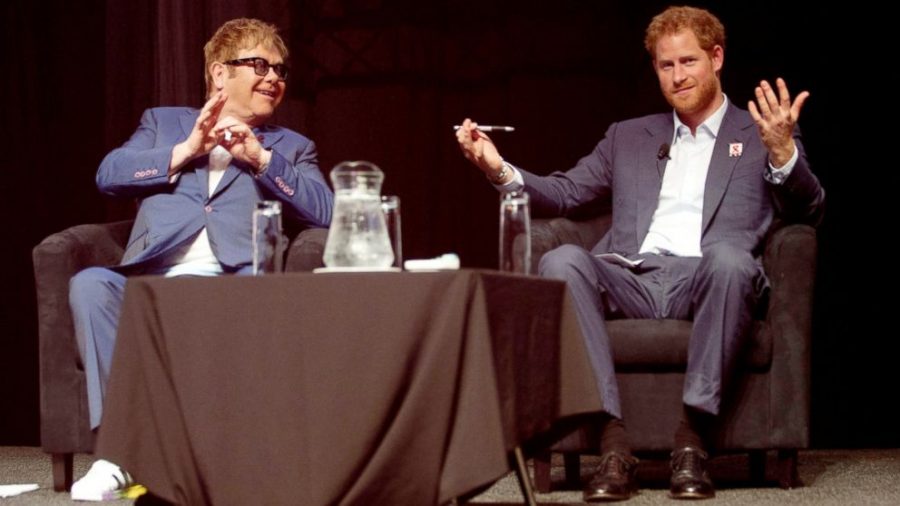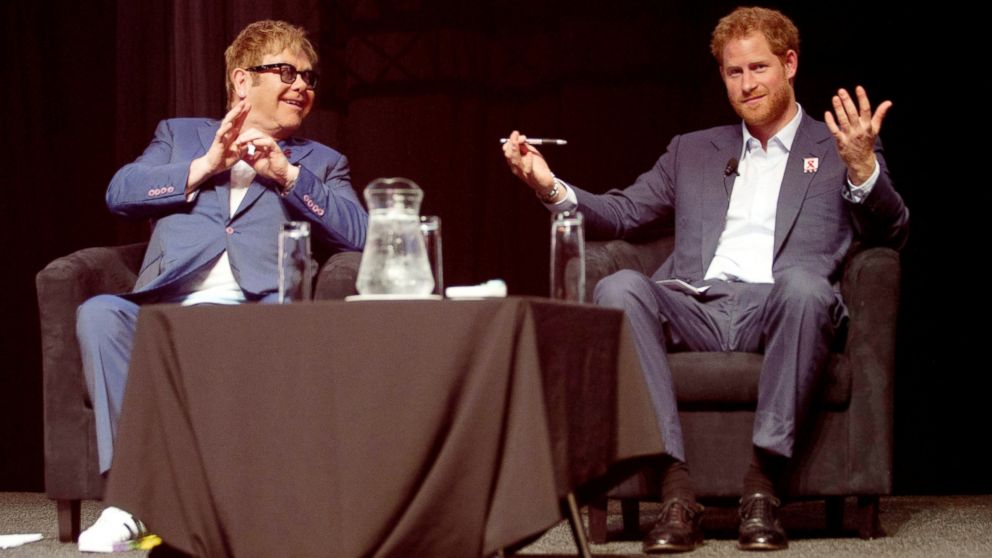
Prince Harry Honours His Mother’s Legacy in AIDS Speech in Durban
DURBAN – In a passionate speech at the International Aids Conference in South Africa today, Prince Harry recalled the work of his late mother Princess Diana… honouring her legacy in the fight against AIDS. Speaking in Durban, he said it is thanks to the work of leaders like Nelson Mandela, Sir Elton John and “my mother, Princess […]

DURBAN – In a passionate speech at the International Aids Conference in South Africa today, Prince Harry recalled the work of his late mother Princess Diana… honouring her legacy in the fight against AIDS.
Speaking in Durban, he said it is thanks to the work of leaders like Nelson Mandela, Sir Elton John and “my mother, Princess Diana” that huge progress has been made in the fight against HIV.
He went on to say: “When my mother held the hand of a man dying of AIDS in an East London hospital, no one would have imagined that just over a quarter of a century later treatment would exist that could see HIV-positive people live full, healthy, loving lives.”
Prince Harry also spoke about his experiences with children affected by AIDS in Lesotho; and together with Sir Elton John he urged a new generation of leaders to step up in the response to HIV.
The prince said we “cannot lost a sense of urgency, because despite all the progress we have made, HIV remains among the most pressing and urgent of global challenges.” (Read his full speech at the bottom of the page.)
He also stressed the importance of no young person feeling any shame to ask for an HIV test – a cause which he believes so strongly in that last week he got publicly tested for HIV:
Sir Elton John reiterated “we’ll never end AIDS if we don’t listen to young people”.
Earlier in the conference, the musician launched a new $10-million LGBT (lesbian, gay, bisexual, transgender) fund and emphasised the importance of love, non-discrimination and that “no human being should be left behind – no matter colour, sexual orientation or religion”. He said inclusion is the key to ending AIDS.
On Twitter…
Prince Harry and Sir Elton John sign the UNAIDS #ProTESTHIV wall at #AIDS2016. Get tested. Know your #HIV status. pic.twitter.com/bP78xR4oga
— UNAIDS (@UNAIDS) July 21, 2016
"Why wouldn't we get tested? …There should be no more stigma around it" – Prince Harry. #AIDS2016 #ProTESTHIV pic.twitter.com/bfbucsJr27
— UNAIDS (@UNAIDS) July 21, 2016
Thanks Prince Harry and @eltonofficial for joining our Youth Ambassadors discussing issues facing their generation pic.twitter.com/EYxOeUYzpA
— IAS – the International AIDS Society (@iasociety) July 21, 2016
Prince Harry, Elton John Join Forces at International AIDS Conference https://t.co/SEJuG7fSFp #enews #Trending pic.twitter.com/GWZIFTdvOE
— AlgoEntertainment (@AlgoENews) July 21, 2016
Prince Harry’s Speech at the Aids International Conference in Durban, South Africa – 2016
I first travelled to the beautiful mountain kingdom of Lesotho when I was 19. This stunning country is home to some of the most breathtaking scenery on earth, but it is also home to some of the world’s most vulnerable young people.
On that first visit, and many others over the last 13 years, I have met countless young people who know little of what it means to be a child. It is all too common for a 12 year old boy or girl to be forced out to work so they can provide for their brothers and sisters, having lost one or both parents to AIDS.
When my friend Prince Seeiso and I founded Sentebale, we saw early on that children living with HIV grapple with several medical, emotional and social challenges all at once. We knew that just focusing on the physical effects of the disease wasn’t enough – a child with unaddressed depression or traumatic stress from bereavement, poverty, and discrimination is not a child who is likely to stick with their treatment programme.
I have spent the last few days visiting our new Momahato Childrens’ Centre near Maseru. Our team there create a safe and open environment where young people are encouraged to share their experiences of living with HIV, often for the first time, with their peers.
Over the last decade working in Lesotho, I’ve seen first hand the amazing progress that has been made in treating the physical and mental effects of HIV. These advances in halting transmission, expanding access to treatment, and improving provision of testing are the successes of many of the people and organisations gathered here at this conference.
At the time of the first International AIDS conference, HIV was a death sentence. Treatment was not widely available in the developed world, let alone in poorer regions. Stigma kept HIV positive people from talking openly about their condition and kept vulnerable people from having the courage to step into a clinic and ask for a test.
But thanks to the work of leaders in the fight against HIV – people like Nelson Mandela, Sir Elton John, the brave activists of TAG and ACT UP, people like Dr Peter Piot, and like my mother, Princess Diana – we have made huge progress.
When my mother held the hand of a man dying of AIDS in an East London hospital, no one would have imagined that just over a quarter of a century later treatment would exist that could see HIV-positive people live full, healthy, loving lives.
But we now face a new risk – the risk of complacency.
As people with HIV live longer, AIDS is a topic that has drifted from the headlines. And with that drift of attention, we risk a real drift of funding and of action to beat the virus.
We cannot lose a sense of urgency, because despite all the progress we have made, HIV remains among the most pressing and urgent of global challenges – 1.1m people died of AIDS and 2.1m were infected last year alone. HIV remains the number one cause of death amongst adolescents in sub-Saharan Africa. In my own country, infection rates are still rising amongst important groups despite the availability of instant testing and universal access to treatment.
So it is time for a new generation of leaders to step forward.
It is time for us to step up to make sure no young person feels any shame in asking for an HIV test.
It is time for us to step up to make sure that girls and boys with HIV aren’t kept from playing with their friends, classmates, and neighbours.
It is time for us to step up and acknowledge that stigma and discrimination still act as the greatest barrier to us defeating this disease once and for all.
What I have seen in the last few days in Lesotho gives me huge confidence that we will rise to this challenge. Seeing young people who have so little, yet who work so hard to support their friends and educate their families about HIV, continues to inspire all of us at Sentebale. They are why I care so much about this fight.
I hope that their stories of courage, and not just the huge problems they face, can inspire all of you as well.
What I believe is that we cannot beat HIV without giving young people in every country the voice they deserve. Without education and without empowerment, HIV will win.
But just imagine what would happen if in places like Lesotho and throughout Africa, children were given the tools to protect their health, to speak out against stigma and discrimination, and to support their friends and family. In helping young people to fight HIV we would not just be ending this epidemic, we would change the direction of history for an entire generation.
Thank you.